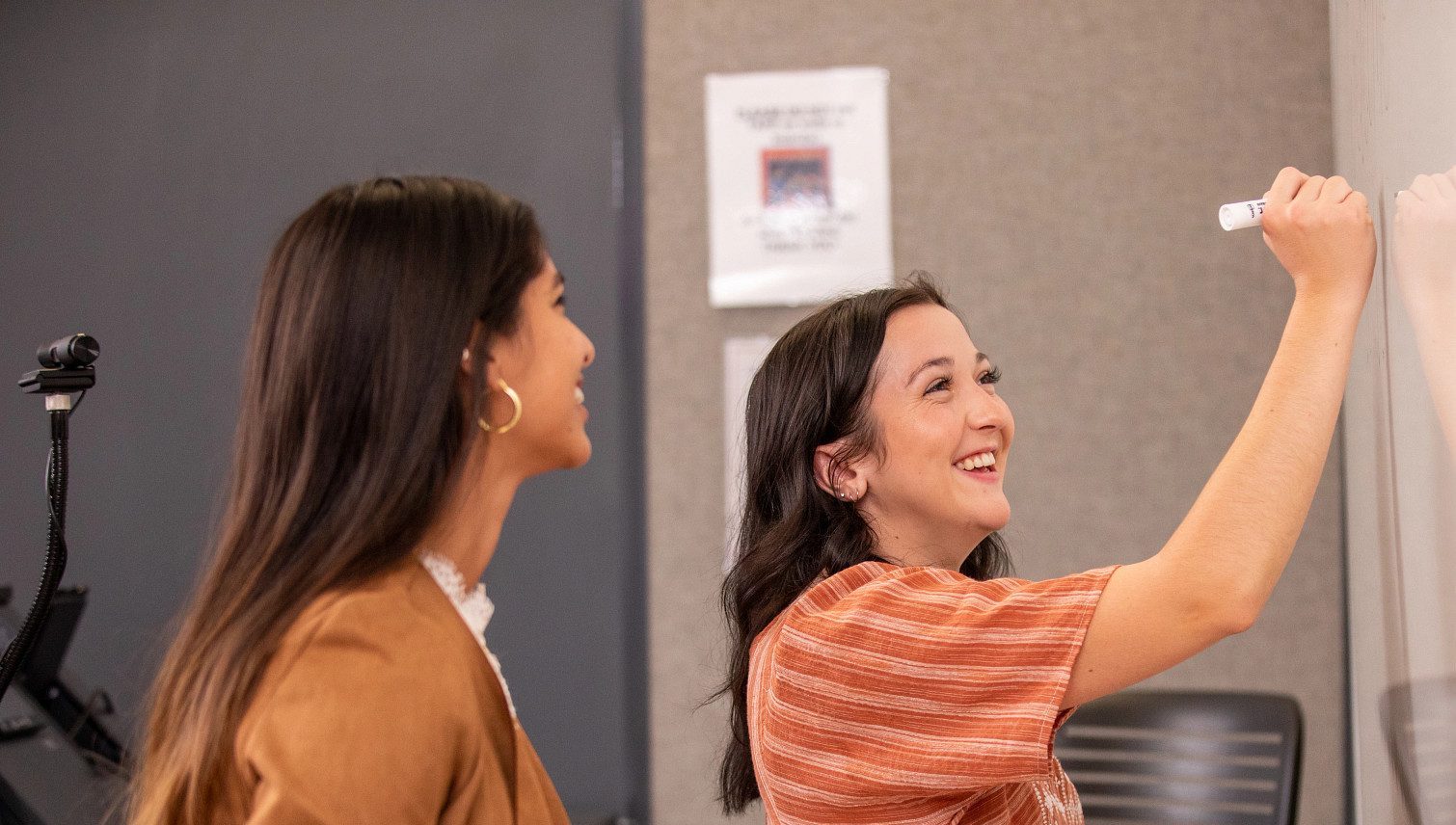Learn more about the Dean’s Research Grant Awards, including reporting requirements, evaluation criteria, and what to include in the application proposal.
Page formatting
All pages must be formatted as follows:
- one-inch margin on all sides
- single spacing or greater
- 12-point font (avoid bold type font; New Times Roman or similar size preferred)
Application proposal
The application proposal should be no more than 3500 words, not including the budgeting spreadsheet and attached résumés. Please include the following:
- Abstract: 100 words maximum.
- Project description, goals, and objectives: describe the project for which funding is requested, including the major goals and objectives. Identify the relevant problem or research question that this project will address. Include a brief literature review supporting your research question(s). Also discuss the importance or significance of the project, and explain why it should be funded. Include a statement of the relationship of the project to the COE and NAU mission and goals.
- Research team: outline the details of the collaboration, including the specific roles and responsibilities of each researcher.
- Procedures and methods: describe the methodology that will be applied to the project, outlining relevant features such as data collection and analysis methods. Please also provide a general timeline for accomplishing the work of the project. Additionally, include the abilities of the faculty members conducting the project and the facilities available for accomplishing the project’s objectives. Describe any logistical arrangements that are essential to the project. Please note that any research involving human subjects must by federal and state regulations be reviewed and approved by the NAU Institutional Review Board (IRB). Proposals should indicate whether IRB review is required as part of the research methods and provide the process for seeking IRB review in the application timeline section.
- Outcomes: describe any outcomes that will ensue from the project and explain how the results of the project will be evaluated and disseminated. Another outcome that is highly desirable is the plan to submit a version of the project for intramural funds, preferably external, and how the results of the project will enhance your grant funding application. Identifying specific requests for proposals (RFPs) is a definite plus.
Application proposal continued
- Budget and budget narrative: itemize and justify in a budget narrative any and all requests for expenses related to the grant proposal, such as student assistants; equipment; materials and supplies; operating expenses (e.g., copying costs, telephone, and clerical help); travel to collect data; and so on. Please note that all purchases of non-consumable items made with this grant (such as equipment, software, books, and DVDs) are the property of the university. These items are not to be retained by the researcher but are instead to be turned over to the university when the grant project is completed.
- Other: for proposals that are closely related in some way to an earlier funded project, the applicant must explain how the new proposal is a fundamentally different project than the one that was previously funded. You may also address any feedback provided during the letter of intent phase in this section.
- Documentation: the proposal must include a list of references, bibliography, works cited, or other statement of supporting materials consulted or available for this project.
- Brief résumé: please provide a one-page résumé (not counted in word count) which will list your qualifications as well as any grants (internal or external) and/or fellowships awarded during the past five academic years (dates, amount of funding, nature of activity, and principal outcomes) for each faculty collaborator on the team.
- Timeline: include a timeline for all activities relevant to the proposal (e.g., IRB application, data collection, analysis, etc.).
Reporting requirements
By the last work day in September following the year of the grant, recipients must provide the dean’s office with a report of the outcomes of the funded project for dissemination on the college website, including a brief abstract. Applications received from individuals who have not submitted required final reports for previously awarded grants by the deadline for receipt of the next round of grant proposals will not be reviewed.

What the report must include
- An abstract (maximum 100 words) summarizing the major activities of the project and results
- Summary of budget expenditures
- Review of the results of the grant activities
- A highlight of the nature of the collaboration and its impact on project activities
- Review how the completed project achieved its proposed objectives
- Comment on how the results of this project have been or will be disseminated
Evaluation criteria
The committee’s recommendations will be based on a number of evaluation criteria, including the following:
Quality and clarity
Projects should exemplify professional initiative and should be justified in broad terms as supporting the mission of the university and the individual faculty member’s professional development. Additionally, proposals have a limit of 3500 words and should be written clearly in non-technical and jargon-free language for a general audience. Proposals must provide specific information on technical elements including methodology for completing the project, proposed calendar, budget items and amounts, and expected results.
New applicants and prior results
In the case of two proposals of equal merit and insufficient funding for two awards, the proposal by a new applicant receives priority over a new proposal by a previously funded faculty member. If a proposal is submitted by a faculty member with a long history of funded projects (three or more awards in a row in the same category), the committee will only consider funding that person’s proposal after all other worthy proposals have been funded.
Similarly, in instances involving persons who have received prior grant funding, the committee will consider the quality of the final reports submitted and the ultimate results of prior grant projects as new award decisions are made. Poorly written final reports, or a record of past projects that did not result in productive final outcomes, will be taken into consideration as the Committee makes its decisions about awards.
Simultaneous applications
The committee encourages faculty members to seek outside funding whenever possible. If an outside agency funds a proposal, the DRGA funding may be reduced or rescinded as appropriate. The Committee also reserves the right to not fund a project receiving funds from other university sources.
Grant applications by committee members
To avoid a conflict of interest, project proposals from members of the DRGA committee will be reviewed only after the committee member making the proposal has left the room. The committee’s recommendation about the grant proposal will be conveyed directly to the dean and will not be shared with the committee member who made the proposal.
Collaborative research proposals
The DRGA promotes the inclusion of student researchers and recognizes the value of mentoring and guiding student research. Applicants who submit a proposal that includes collaboration between faculty and students/colleagues/peers are required to mention the names of collaborators and describe in detail the nature of the collaboration and the applicant’s role in that collaboration.
